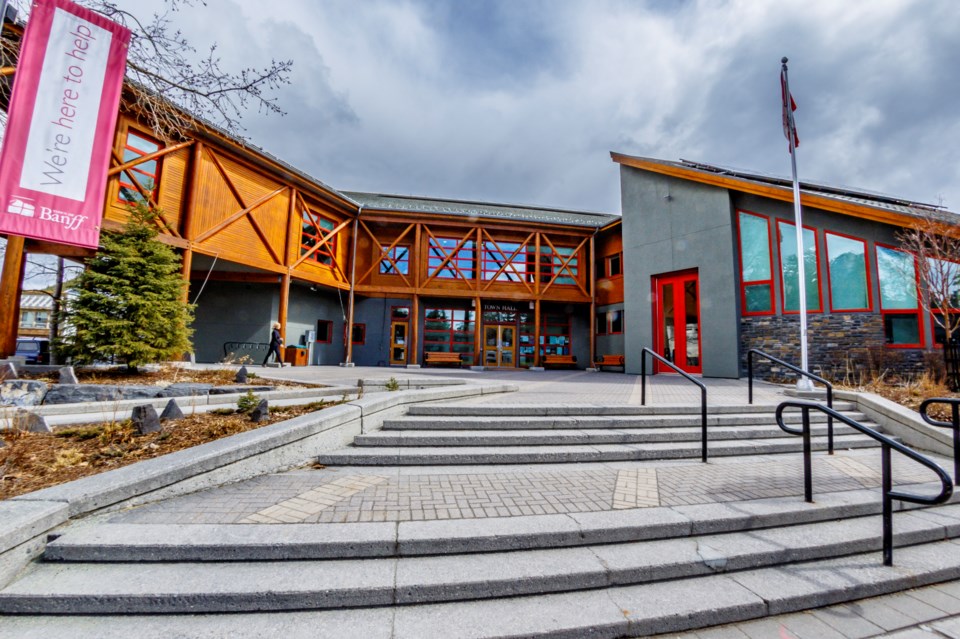BANFF – Banff’s mayor has slammed what is seen as an education tax grab by the Alberta government with nothing in return to support the tourist town that generates big bucks for provincial coffers.
The Alberta government’s budget, which was handed down last Thursday (Feb. 29), increased Banff’s school tax requisition by 18 per cent from $8.8 million in 2023 to $10.3 million for 2024, which the municipality collects on behalf of the province.
“There is no evidence that any of that $10.3 million that they take out of Banff gets put back into Banff,” said Mayor Corrie DiManno. “This budget fails to deliver on what Banff needs right now and in the future. We are being taxed more, but we are not receiving more.”
Education property tax revenue is forecast at $2.7 billion province-wide in 2024-25. While education property tax rates will be frozen in 2024-25, revenue will increase by $229 million from the 2023-24 forecast, reflecting the growth in the assessment tax base.
“For Banff, it’s up 18 per cent and we were not expecting it to be that high,” said DiManno.
Banff will determine its tax rate bylaw in the near future.
However, based on historical philosophy of this council and past councils, it is highly unlikely Banff will lower its 9.79 per cent municipal tax increase in order to lessen the burden on the overall tax bill due to the the provincial education tax requisition.
“For me, that’s always been a really difficult conversation because Banff needs to utilize the property tax mechanism that we have to collect the amount needed for our resident and visitor services,” said the mayor.
“We have to budget for what we need in order to operate to the standards that we need to in line with our strategic goals and to ensure that we have a good quality of life for residents here in Banff,” she added.
“It’s so frustrating when you are dealt a hand by the province, which sees such a massive increase to a tax that the municipality has no control over, and we essentially just collect on behalf of the province.”
A spokesperson for Alberta Municipal Affairs said education property tax rates have been frozen at the same rates as last year.
"Revenue collected from education property taxes will be higher this year due to increases in property assessments," said Scott Johnston, press secretary for Municipal Affairs Minister Ric McIver in an email.
"The increased revenue will provide further support to school divisions and their communities."
DiManno said the Local Government Fiscal Framework (LGFF), which has replaced Municipal Sustainability Initiative (MSI) on infrastructure grants for municipalities was also “very alarming for us”.
Banff gets $1.9 million in capital funds and $218,500 in operating grants under the LGFF for 2024, but DiManno said, when first handed down, the budget indicated it was actually eight per cent lower than that.
“We did have a conference call with Municipal Affairs on Friday afternoon where we learned that we will be topped up and we will be held to last year’s levels,” she said.
“It doesn't reflect inflation for materials and labour, so we’re basically being held stagnant on our infrastructure funding while costs continue to escalate.”
DiManno said the grant amounts show the province’s new funding model does not work for Banff and other tourism-based communities.
“This is so annoying because the demand on our infrastructure keeps increasing,” she said. “We have over four million visitors a year coming into our community and the cost to maintain our infrastructure to host them is being paid for by 9,000 residents and our businesses.”
A recent report prepared for Banff, Canmore and Jasper underlines what the tourism-based communities have long lobbied the provincial government for – an official tourism-based status that helps support the weight of their visitor economies.
According to a December 2022 report by Verum Consulting, the the towns together generate an estimated $112 million in provincial taxes annually and contribute $2.3 billion to provincial GDP.
“Yet this budget does not reinvest in Banff,” said DiManno.
In addition, there are no specific mentions of new projects for Banff in the budget, strategic plan or fiscal plan.
As for housing, the province will spend $717 million in capital grants overall over three years to advance Alberta’s Affordable Housing Strategy, including $254 million in new funding to help build about 3,300 new affordable housing units and complete 1,800 units already underway.
DiManno said she was hopeful there would be housing funding specifically for Banff – where there is a housing shortfall of between 700 and 1,000 units – but there wasn’t any.
“This would have been a great time to announce funding under the Affordable Housing Program to help us add desperately needed homes in our community,” she said.
“I’m trying to remain hopeful for the future, but it’s become harder to believe that they’re going to support us in addressing our housing crisis, so that was really disappointing.”
As for the LGFF, the budget provides $2.4 billion over three years province-wide to help fund local infrastructure priorities. The ministry said municipalities have been aware of their LGFF provincial allocations for 2024 and 2025 since Dec. 15, 2023.
The ministry said this includes $2.2 million in top-up funding province-wide in 2024. In addition to $1,296,389 in LGFF funding for 2024, the department noted the Town of Banff is receiving $106,456 in top-up funding.
“Alberta’s government has also made sure that no municipality will receive less in Budget ’24 under the Local Government Fiscal Framework, than they did last year under MSI," said Johnston.




